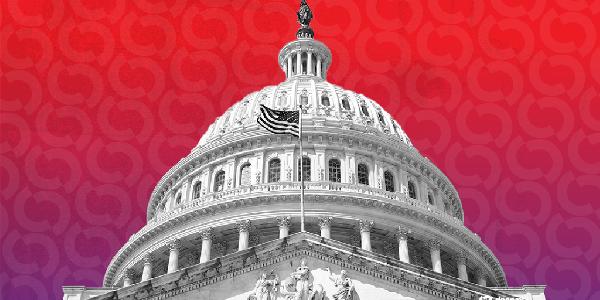The U.K. is fast emerging as one of the world’s leading crypto hubs, owing to a combination of its thriving startup ecosystem, strong financial infrastructure, and solid support from policymakers.
The momentum around the U.K.’s crypto scene is growing rapidly. In a recent study by Recap, London was singled out as one of the world’s best cities for doing business in crypto. Recap’s conclusion was based on eight key data points that all pointed to London as being one of the most enticing locations for crypto startups and businesses.
As Recap notes, the widespread adoption of crypto is predicated on a number of conditions, including friendly regulations and a proper infrastructure to build on. London has both, and together they ensure easy access to the crypto ecosystem for public funding. Recap’s research also found that London scored highly in other key metrics, such as taxes, jobs, ATMs, and crypto events, coming in ahead of other cities that are perceived as being crypto-friendly, such as Dubai, Paris, New York, Hong Kong, which was previously ranked number one but has since dropped to seventh place.
London’s claim to be one of the best cities for crypto startups will likely please the U.K.’s new Prime Minister Rishi Sunak, who last year spelled out a vision that will ensure the country’s financial services industry “is always at the forefront of technology and innovation”. While Sunak hasn’t had an awful lot of time to build on that vision, he’s certainly on track to fulfill it.
The U.K. government under Sunak has made a number of encouraging moves that should further bolster the country’s reputation as the place to do crypto business. Last year for instance, the Bank of England and the U.K.’s Treasury issued a joint statement that underscored the need for a “central bank digital currency”, or CBDC, to launch by 2030 at the latest.
More recently, the U.K.’s Financial Conduct Authority - one of its leading financial regulators - demonstrated its willingness to embrace crypto technology. The word came straight from the horse’s mouth when FCA Executive Director Sarah Pritchard spoke during London’s City Week conference to emphasize the need for collaboration with crypto industry participants in order to create regulations that won’t suffocate innovation.
“We want industry’s input to make sure we get the future regulatory regime for crypto assets right,” Pritchard said. “Let’s work together, to shape our rules and regulations to benefit markets, consumers, and firms as crypto goes from niche to mainstream.”
That same month, further positivity around the U.K.’s crypto scene arose from the Treasury department, which announced that it’s reviving its plan to create an Asset Management Taskforce. One of its key roles will be to develop crypto regulations alongside the private sector, Sky News reported.
Focus On The Metaverse
Aside from introducing a suitable regulatory climate to foster crypto ecosystem growth, the U.K. also has ambitions to become a leader in areas such as Web3 and the metaverse.
A report from CoinDesk in March focused on the U.K.’s 2023 Spring Budget, which mentioned how the government is plotting to “lead on the future of web technology, sometimes known as Web3 or the metaverse”. According to that report, the newly established Department of Science, Innovation, and Technology will spearhead these efforts, looking at the prospects for economic growth opportunities, business models, and investment associated with the metaverse and Web3.
The metaverse in particular has lots of potential for growth. It has emerged as one of the biggest buzzwords in tech alongside artificial intelligence, with Citigroup recently declaring it to be a $13 trillion opportunity. That explains why Facebook’s parent company Meta Platforms has dove headlong into the sector, investing billions of dollars into metaverse and virtual reality research.
The U.K. is home to a thriving metaverse startup community already. Last November, Remagine Ventures mapped out the country’s entire metaverse landscape, highlighting no less than 89 startups in the space. Some of its most notable metaverse startups include Improbable, a simulation engine company that’s working with Bored Ape Yacht Club NFT creator Yuga Labs to build a metaverse called Otherside. Others include Blippar, an augmented reality creation startup; Framestore, one of the world’s leading VR and visual effects studios; Condense Reality, a Bristol-based startup that helps to livestream metaverse events; and LandVault, a metaverse real estate startup helping brands to create virtual experiences.
Moreover, some of the industry’s most established metaverse companies are flocking to the U.K. too. For instance, Upland, a virtual property trading game built on the EOS blockchain that’s mapped to the real world, recently expanded to incorporate digital replicas of London and Birmingham within its virtual domain. One of Upland’s aims is to create a parallel digital economy where players can generate real-world value through digital property ownership and commerce. It’s one of the biggest metaverses around, notable for partnering with FIFA to sponsor the Qatar 2022 World Cup. With millions of users, its entry into the U.K. will only help to generate further buzz in a country that’s deadly serious about metaverse growth.
London and Birmingham are calling!










